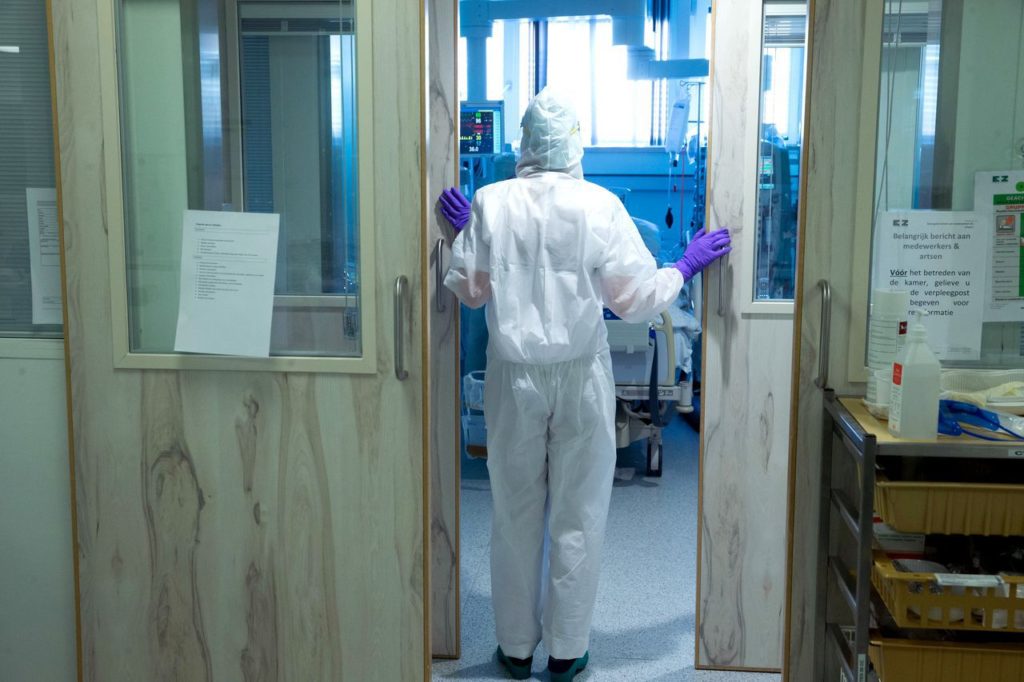The use and legitimacy of Belgium's coronavirus measures, as well as the experts and policymakers behind them, are being called into question by hundreds of doctors, medical specialists, lawyers and economists, in two separate open letters.
In a first open letter to Belgian policymakers, published on Thursday, over 40 authors demand new, multidisciplinary working groups, De Tijd and L'Echo reported.
"The approach to the COVID-19 health crisis has enormous shortcomings and is inadequate,” the authors said.
"The crisis is being managed by a handful of experts appointed on the basis of unknown and unclear criteria,” they continued. “Too many decisions taken in recent months have an unfounded scientific basis. All too often, the direct and indirect impact of the measures has been underestimated.”
They are asking for a thorough evaluation of the effectiveness of the measures to limit the spread of the coronavirus. The authors stressed that “the errors of the past can no longer be reproduced” and that "the future management of the crisis must be scientifically sound, rational and proportionate."
Finally, they asserted that “citizens have the right to objective and honest information,” adding that “the current climate of covidophobia is completely unjustified and generates harmful anxiety for a large part of the population.”
The full letter can be read here.
To a reverse lockdown?
In a separate open letter to the Belgian government and expert groups, hundreds of doctors, health scientists, researchers and other healthcare professionals demand that the measures against the spread of the coronavirus - "the logic of which is sometimes lacking" - be substantially adjusted, and that Belgium opts for "a reverse lockdown."
In the letter, the healthcare workers emphasised that they considered the lockdown at the start of the crisis to be absolutely justified. "We knew little about the virus at the time, our hospitals were in danger of being flooded," they wrote.
Almost half a year after the first coronavirus death in Belgium, however, they consider the situation to be completely different.
Related News
- AstraZeneca exempted from liability clause for coronavirus vaccine
- Belgian average decreases further, 492 new coronavirus infections per day
- Belgium will receive 7.5 million coronavirus vaccines, De Block says
"We understand that, at the beginning of the crisis, there was a lack of clarity as to the seriousness and impact of this virus. With the data available to us today, the narrative that was started at the time appears to have taken on a life of its own and it seems very much that the protagonists in this story want to maintain it," they wrote.
Containing the Covid-19 virus seems an acceptable strategy at first sight, they say, but will never solve the problem unless "we accept to spend the rest of our days in a society of fear."
They also compare the virus to the seasonal flu, which they say causes between 320,000 and 650,000 deaths worldwide every year, but which did not see societies locking down or shielding the elderly.
The experts, among whom are also former ministers and surgeons, therefore call for all measures to be reviewed and examined to see whether they are necessary, desirable and in line with the seriousness of the situation.
The narrative with which the pandemic was initially approached is "clearly disproportionate to what we know today," according to the experts.
If policymakers and experts have to place the measures in the current and broad scientific context, and the information is transparent and correct, citizens will understand and find the necessary motivation to follow them once again, they write.
Additionally, the collateral damage of the restrictions will lead to increases in depression, anxiety, suicides, intra-family violence and child abuse, they said, referring to analyses by three Belgian independent researchers, based on data from the country's first lockdown.
Instead of the strict rules for the entire population, the signatories advocate "a reverse lockdown, in which high-risk patients, together with their doctors, develop a strategy for self-protection."
"In short," they say, "protect those who need it, and allow the rest of the population to move freely so that the disease can spread naturally. It will eventually weaken the virus."
The full open letter (in Dutch) can be read here.
Jason Spinks and Maïthé Chini
The Brussels Times

